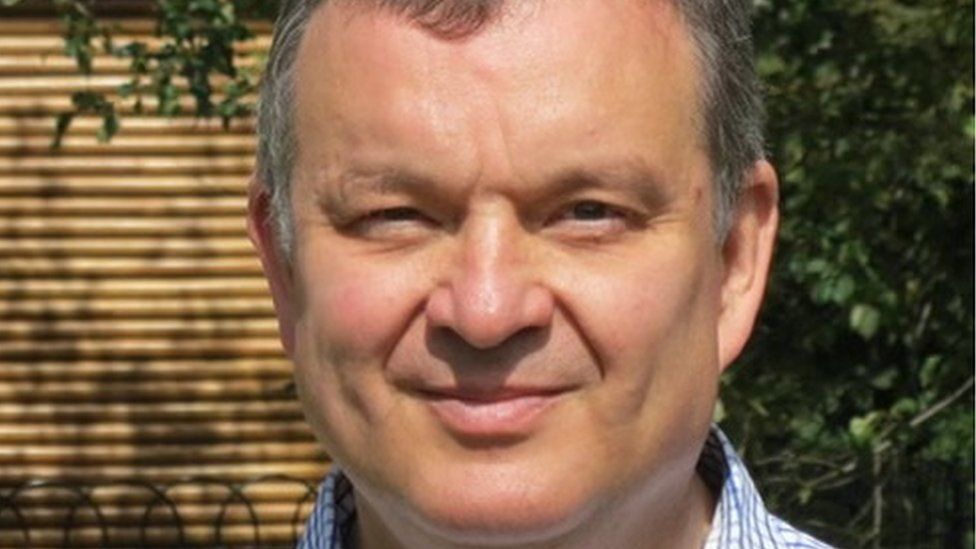ARTICLE AD BOX
 Image source, Dan Kaszeta
Image source, Dan Kaszeta
Dan Kaszeta was blocked from addressing the Chemical Weapons Demilitarisation Conference after attacking government policy on social media
By Sima Kotecha
BBC Newsnight
Controversial guidance used to vet potential speakers for government-organised events has been withdrawn, a Cabinet Office minister has said.
The advice saw weapons expert Dan Kaszeta banned from addressing the Ministry of Defence due to criticisms he made of the government on Twitter.
Mr Kaszeta called the decision an "outrage against free speech".
He has since received an apology and the government has said it is now reviewing the advice.
In a written statement, published on Thursday, Cabinet Office Minister Jeremy Quin said the guidance had originally been developed to help civil servants avoid issuing speaking invitations to "individuals or organisations who have expressed or supported extremist views".
The aim, he said, was to prevent events from taking place which "might lead to the impartiality of the civil service being called into question or its reputation otherwise brought into disrepute".
However, Mr Quin said the guidance was not being used in the way it was originally intended and that there was a risk of it being misinterpreted.
"It is important that we protect civil service impartiality but not in a way that could result in adverse unintended consequences," he added.
The minister said he had decided to withdraw the current guidance, review it and reissue it in the early autumn "having ensured that the guidance strikes the right balance".
In a letter sent to Mr Kaszeta's lawyers, seen by BBC Newsnight, the government says it does not accept that the guidance is "unlawful" but adds - as set out in the written statement - that the Cabinet Office Guidance and the Diversity Network Guidance are being reviewed.
The letter adds that both documents are "likely to be revised" following the review.
The decision comes three months after Mr Kaszeta - a global expert on nerve agents - was told he could not attend a Ministry of Defence conference because civil servants had "identified material that criticises government officials and policy" on his social media platforms.
In April, Mr Kaszeta, told BBC Two's Newsnight he was "outraged" that the government's trawl through his Twitter account - on which he had criticised Brexit and the government's asylum policy - meant he was no longer able to attend the conference on chemical weapons demilitarisation (CWD).
In an email from the Ministry of Defence, Mr Kaszeta was told: "The check on your social media has identified material that criticises government officials and policy. It is for this reason and not because we do not value your technical insight, that I'm afraid that we have no choice and must cancel your invitation to the CWD conference."
In another example of a speaker being banned for criticising the government, Professor Kate Devlin saw herself disinvited from an event about women in tech.
The artificial intelligence expert told the Independent she was blocked from attending due to her criticisms of the government's Online Harms Bill.
A Cabinet Office spokesperson said: "The government is committed to protecting free speech whilst maintaining civil service impartiality. We are reviewing the guidance and have temporarily withdrawn it to prevent any misinterpretation of the rules."

 1 year ago
34
1 year ago
34








 English (US) ·
English (US) ·